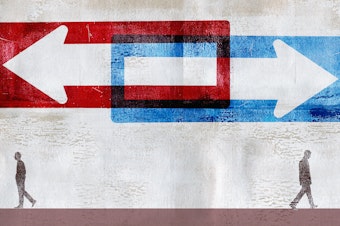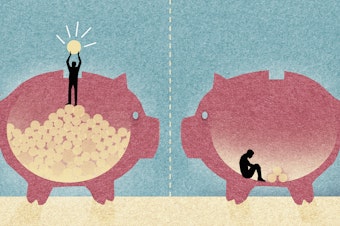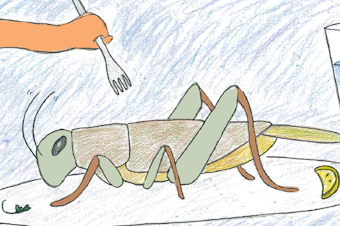Parth Shah
Stories
-

More Divided Than Ever? Excavating the Roots Of Our Political Landscape
Many of us intuitively feel that the bitter partisanship of American politics is bad for our nation. So should we be concerned about the health of our democracy? This week on Hidden Brain, we revisit two of our favorite conversations about U.S. politics. We start by talking with political scientist John Hibbing about the psychological differences between liberals and conservatives. Then, we explore the role of conflict in democracy with historian David Moss.
-

Where Does Religion Come From? One Researcher Points To 'Cultural' Evolution
If you've taken part in a religious service, have you ever stopped to think about how it all came to be? How did people become believers? Where did the rituals come from? And what purpose does it all serve? This week, we bring you a July 2018 episode with social psychologist Azim Shariff. He argues that we should consider religion from a Darwinian perspective, as an innovation that helped human societies to thrive and flourish.
-

Why No One Feels Rich: The Psychology Of Inequality
If you've ever flown in economy class on a plane, you probably had to walk through the first class cabin to get to your seat. Maybe you noticed the extra leg room. The freshly-poured champagne. Maybe you were annoyed, or envious. Social psychologist Keith Payne says we tend to compare ourselves with those who have more than us, but rarely with those who have less. This week, we explore the psychology of income inequality, and how perceptions of our own wealth shape our lives.
-

What Can A Personality Test Tell Us About Who We Are?
The desire to find our tribe is universal. We like to know who we are and where we belong. This fascination has led to a thriving industry built on the marketing and sale of personality tests. These tests offer individuals – and, increasingly, employers – quick and easy insights that can be used to make some of life's biggest decisions. But most fail to stand up to scientific scrutiny. This week, we revisit our 2017 episode about the world of personality testing, and explore the many different ways we assess personality and potential – from the Chinese zodiac to Harry Potter houses to the Myers-Briggs test.
-

Radically Normal: How Gay Rights Activists Changed The Minds Of Their Opponents
For generations, living openly as a gay person in the United States was difficult, and often dangerous. But there's been a dramatic change in public attitudes toward gay people. This week, we explore one of the most striking transformations of public attitude ever recorded. And we consider whether the strategies used by gay rights activists hold lessons for other groups seeking change.
-

What Twins Can Tell Us About Who We Are
In December 1988, two pairs of twin boys were born in Colombia. One twin from each pair was accidentally given to the wrong mother — a mistake that wasn't discovered for decades. The twins' story is a tragedy, a soap opera, and a science experiment, all rolled into one. It also gives us clues about the role that genes and the environment play in shaping our identities. We talk with psychologist Nancy Segal about her work with twins, and her encounters with these now-famous brothers. For research related to this episode, please visit https://n.pr/2uvpvPe
-

For Sale, By Owner: The Psychology Of Repugnant Transactions
You own your body. So should you be able to sell parts of it? This week, we explore the concept of "repugnant transactions" with the man who coined the term, Nobel Prize- winning economist Al Roth. He says repugnant transactions can range from selling organs to poorly-planned gift exchanges — and what's repugnant in one place and time is often not repugnant in another.
-

Rewinding & Rewriting: The Alternate Universes In Our Heads
All of us are time travelers. We go back in history to turning points in our lives, and imagine how things could have turned out differently. Psychologists refer to this as "counterfactual thinking." This week on Hidden Brain, we look at why some events prompt these "What if?" questions, while others do not. This episode originally aired in May 2018.
-

The Cowboy Philosopher: A Tale Of Obsession, Scams, And Family
In 2009, an old man died in a California nursing home. His obituary included not just his given name, but a long list of the pseudonyms he'd been known to use. In this episode, we trace the life of Riley Shepard, a hillbilly musician, writer, small-time con man and, perhaps, a genius.
-

Radio Replay: Yum and Yuck
Paul Rozin has been studying the psychology and culture of food for more than 40 years. And he's come to appreciate that food fills many of our needs, but hunger is just one. On this week's Radio Replay, we chew over the profound role that food plays in our lives. Then, we spit it all out — we study the ick factor that turns us off to cockroaches, skunks, and poop. Rachel Herz explains the sensation of disgust, and why it doesn't always come naturally. For more information about the research in this episode, visit https://n.pr/2UTf1p0.